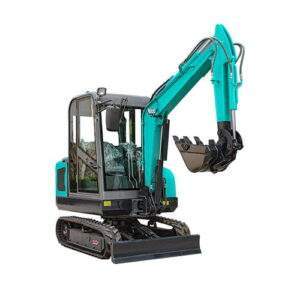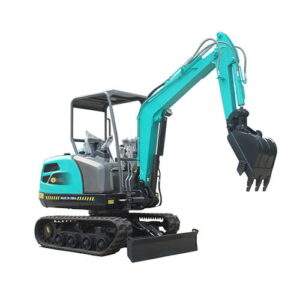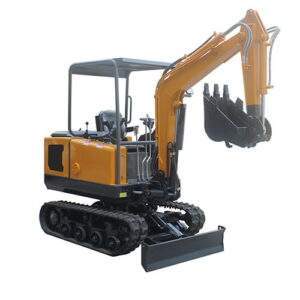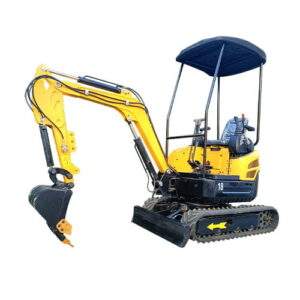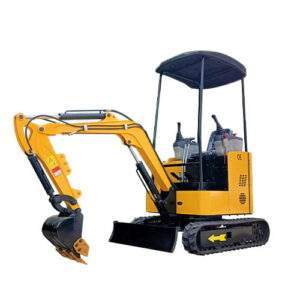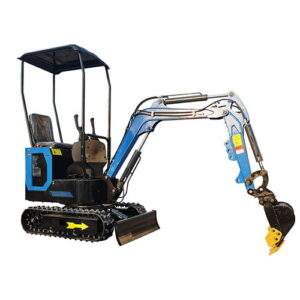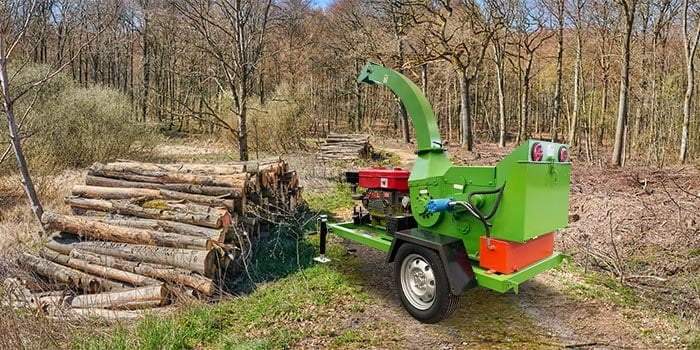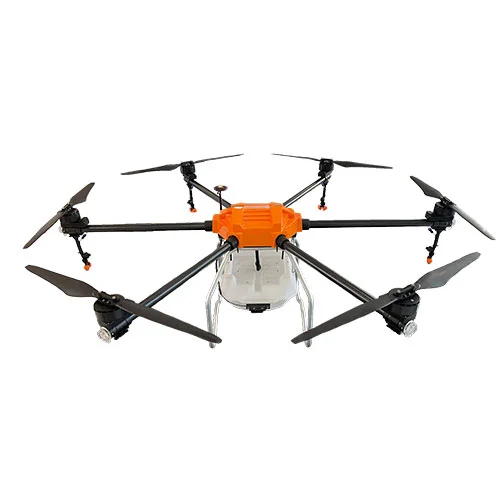Innovative Technologies in Accurate Excavators Revolutionizing Construction
Introduction
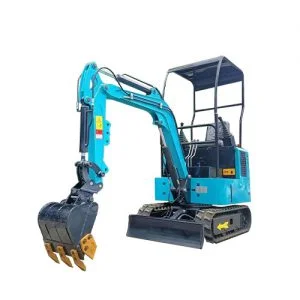
In the dynamic field of construction, the evolution of excavators has been pivotal in enhancing efficiency, precision, and safety. Accurate excavators represent a significant leap forward, integrating advanced technologies to streamline operations and improve outcomes on construction sites. This blog explores the cutting-edge innovations transforming accurate excavators and their profound impact on the construction industry.
Evolution of Excavators: From Traditional to Accurate
Excavators have undergone a remarkable transformation over the years, evolving from mechanical hydraulic systems to sophisticated accurate models. Traditional excavators relied primarily on manual controls and basic hydraulics, which limited precision and operational efficiency. These machines were competent but often required significant operator skill to achieve precise digging and maneuvering.
Accurate excavators, on the other hand, leverage digital advancements such as GPS (Global Positioning System), GNSS (Global Navigation Satellite System), telematics, and advanced sensors. These technologies enable precise positioning, mapping of excavation areas, real-time monitoring of machine health and performance, and enhanced safety features. GPS and GNSS systems allow operators to accurately pinpoint locations and boundaries, reducing errors in excavation tasks. Telematics provide valuable data on fuel consumption, operational status, and maintenance needs, enabling proactive management and optimizing fleet performance. Advanced sensors, including LiDAR (Light Detection and Ranging), radar, and cameras, enhance situational awareness for operators, detect obstacles, and ensure safe operation in challenging environments.
Key Technologies Driving Accuracy
Accurate excavators incorporate several groundbreaking technologies that significantly enhance their performance and operational capabilities:
- GPS and GNSS Systems: These systems provide precise positioning and mapping capabilities, allowing operators to accurately define boundaries and locations for excavation tasks. By integrating GPS data with onboard systems, accurate excavators can maintain consistent digging depths and reduce the need for manual adjustments.
- Telematics and Remote Monitoring: Telematics systems collect and transmit real-time data on the excavator’s performance, including fuel consumption, engine health, and operational status. Remote monitoring allows fleet managers to track equipment usage, schedule maintenance proactively, and optimize operational efficiency.
- Advanced Sensors and Imaging: Utilizing technologies such as LiDAR, radar, and cameras, accurate excavators enhance situational awareness and safety. These sensors detect objects in the machine’s path, provide 360-degree visibility around the excavator, and assist operators in maneuvering safely in confined spaces or complex terrain.
- Intelligent Control Systems: Modern excavators are equipped with intelligent control systems that automate repetitive tasks, optimize bucket movements, and improve digging accuracy. These systems utilize machine learning algorithms to analyze data from sensors and adjust operation parameters in real-time, maximizing efficiency and productivity on construction sites.
Case Studies: Applications in Real-World Construction Projects
Accurate excavators have revolutionized various construction sectors by improving efficiency, safety, and overall project outcomes:
| Project Type | Technology Implemented | Benefits |
|---|---|---|
| Highway Construction | GPS/GNSS, Telematics | Reduced project timelines, minimized material waste |
| Urban Development | Advanced Sensors, Imaging | Enhanced safety, precise excavation in tight spaces |
| Mining Operations | Intelligent Control Systems | Increased productivity, optimized material extraction |
These case studies illustrate how accurate excavators enhance operational efficiency and deliver measurable benefits across different construction projects. From reducing excavation time and material waste on highways to improving safety and precision in urban development and mining operations, the integration of advanced technologies has reshaped industry standards and practices.
Advantages of Accurate Excavators
The adoption of accurate excavators offers numerous advantages that contribute to overall project success and efficiency:
- Increased Productivity: Accurate excavators minimize downtime and improve cycle times through precise digging and automated operation, enabling construction projects to meet deadlines and milestones efficiently.
- Cost Savings: By optimizing fuel consumption, reducing material waste, and lowering maintenance costs through proactive monitoring, accurate excavators help construction companies achieve significant cost savings over the equipment’s lifecycle.
- Safety Improvements: Advanced sensors and imaging technologies enhance operator visibility and reduce the risk of accidents on construction sites. Real-time monitoring and automated safety features ensure compliance with safety regulations and minimize potential hazards.
- Environmental Impact: Accurate excavators contribute to sustainable construction practices by minimizing environmental disturbance, reducing fuel consumption, and optimizing resource utilization. These machines help construction companies achieve their sustainability goals while maintaining operational efficiency.
Challenges and Future Trends
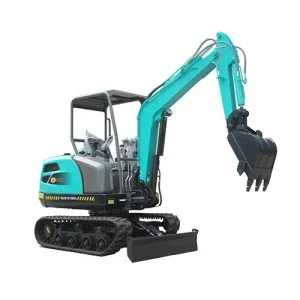
While accurate excavators offer substantial benefits, their adoption and integration present challenges and opportunities for future development:
- Initial Investment: The cost of acquiring and integrating advanced technologies into excavators can be significant. Construction companies must weigh the upfront investment against long-term operational benefits and cost savings.
- Skill Requirements: Operators require training to effectively utilize the digital interfaces and advanced control systems of accurate excavators. Ongoing education and skill development are essential to maximizing the potential of these technologies.
- Integration Issues: Ensuring compatibility and seamless integration among various technologies, including GPS, telematics, sensors, and control systems, is critical for optimizing excavator performance and operational efficiency.
Looking ahead, future trends in accurate excavators include further advancements in artificial intelligence (AI) for predictive maintenance, autonomous operation capabilities, and enhanced connectivity through the Internet of Things (IoT) for comprehensive data analytics. These developments aim to further improve excavation precision, operational efficiency, and overall construction site management.
Conclusion
Accurate excavators represent a paradigm shift in construction equipment, combining advanced technologies to redefine precision, efficiency, and safety. As the construction industry continues to embrace innovation, these machines will play a pivotal role in shaping the future of construction, offering sustainable solutions and optimizing project outcomes. By leveraging GPS, telematics, advanced sensors, and intelligent control systems, accurate excavators empower construction companies to achieve higher productivity, cost savings, and safety standards on construction sites worldwide.
FAQ
Q: How do accurate excavators differ from traditional models?
A:Accurate excavators integrate advanced technologies such as GPS, telematics, advanced sensors, and intelligent control systems to enhance operational precision, efficiency, and safety. Unlike traditional models that rely on manual controls and basic hydraulics, accurate excavators offer automated features, real-time monitoring, and improved data analytics capabilities.
Q: What are the main advantages of using accurate excavators?
A:Key advantages include increased productivity, cost savings through optimized fuel consumption and reduced material waste, improved safety with advanced sensors and automated safety features, and reduced environmental impact through sustainable construction practices.
Q: What challenges are associated with adopting accurate excavators?
A:Challenges include initial investment costs for integrating advanced technologies, the need for operator training to effectively use digital interfaces and control systems, and ensuring seamless integration of multiple technologies for optimal excavator performance.

